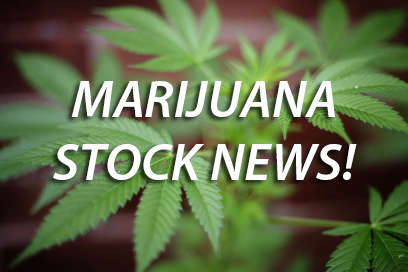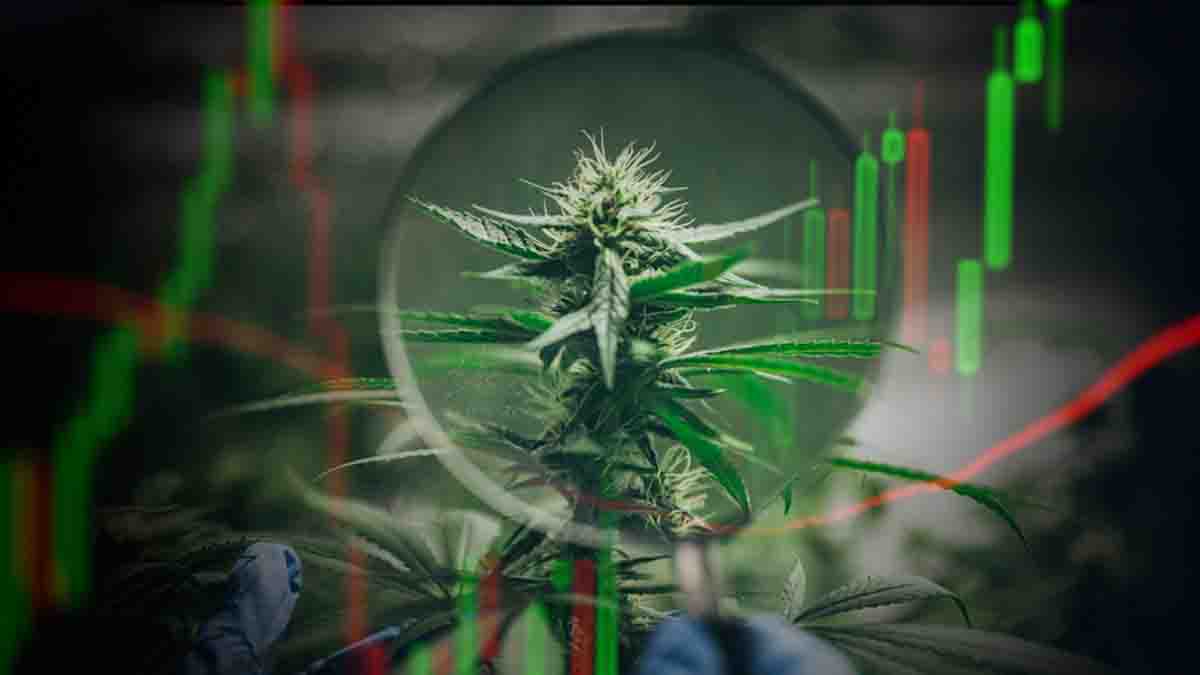Hemp, Inc. Reports on Hemp Industry News
As the Richmond County Daily Journal pointed out in their article below, “Linking hemp and marijuana was a knee-jerk reaction based on misinformed public sentiment rather than science.” Thus, “Allowing industrial hemp cultivation corrects that mistake.” As more states begin to realize the enormous environmental and economic benefits of industrial hemp, state officials are positioning their states to reap the economic rewards.
If you missed the latest news covering the industrial hemp industry, read the re-prints below:
Pennsylvania’s House of Representatives Loves Hemp
Posted on October 9, 2015 by DJ Pangburn
Pennsylvania’s House of Representatives loves hemp. Industrial hemp. In fact, they love it so much that the Agriculture and Rural Affairs Committee approved the newly-introduced House Bill 967 within minutes of introduction, sending it to the house floor for debate and vote.
House Bill 967, introduced by Representative Russ Diamond on Tuesday (October 6), would allow industrial hemp to be grown or cultivated by special programs in Pennsylvania. Currently, American companies must import industrial hemp from countries such as Canada and China, blockading what has historically been one of America’s largest markets.
Pennsylvania’s move, which mirrors those taken by other states, could potentially open up a number of doors for commercial uses, which would benefit the planet given hemp’s low impact on the environment.
“The feds are catching on to the enormous environmental and economic benefits of the use of industrial hemp, and this pilot program anticipates the full legalization of hemp crops for industrial purposes in the future,” said Diamond in a statement. “My bill will put Pennsylvania in a position to reap the economic rewards that will come when further barriers are removed.”
Hemp, an incredibly resilient crop, can grow in a number of climate and soil types, and is largely pest-resistant. It can be used in everything from clothing and home installation to oils (including fuel), food items and paper production. In fact, paper products can be made with very few chemicals unlike with conventional paper mills, which use chlorine bleach to brighten products. A bit more obviously, hemp grows much faster than trees used in paper products, which would be a major coup for the environment. And these are just a small fraction of its existing and potential uses.
As with other states, Pennsylvania’s House Bill 967 grew out of an amendment to the 2014 federal Farm Bill. Signed into law by President Obama, this bill legally redefined industrial hemp as distinct from marijuana, opening the doors for states to pursue academic, state department and commercial research into its benefits as an agricultural crop.
If House Bill 967 passes the Pennsylvania house, the state will join 24 other states in industrial hemp research, including California, Hawaii, West Virginia and New York, amongst others.
OUR VIEW: Hemp holds promise for N.C. farmers
Posted: October 9th, 2015 By: A Daily Journal Editorial
North Carolina lawmakers cooked up an appetizing bit of sausage in the closing days of their marathon regular session last month, though the process used to make it left us feeling a little queasy.
Senate Bill 313, which is awaiting Gov. Pat McCrory’s signature, clears the way for farmers to grow industrial hemp after obtaining a permit from a state study commission. The bill also rewrites the N.C. Controlled Substances Act to distinguish hemp from marijuana.
The move is a leap forward for agriculture, already our state’s No. 1 industry. A versatile and sustainable crop, hemp is grown for its fibers, which are used to make paper, rope, building materials and clothing.
Hemp grows without the use of chemical pesticides and the plant even filters out toxins already in the soil, according to the North American Industrial Hemp Council, an advocacy group. The United States banned its cultivation “based on its biological connection to marijuana,” the council notes, a blunder that shows ignorance of plant science.
Though the crops are cannabis cousins, hemp contains only infinitesimal amounts of the THC found in marijuana that creates the drug’s psychoactive effect. Smoking hemp will not produce a “high.” It is grown by farmers for commercial use, not by users of medicinal or recreational marijuana.
The Marihuana Tax Act of 1937, which marked the U.S. government’s first step to regulate the drug, lumped hemp in with marijuana for no good reason. The feds followed suit with the Controlled Substances Act of 1970, and state legislatures largely mirrored the congressional template in their own drug laws.
Hemp is not, as some would suggest, a Trojan horse that will inevitably lead to the wholesale legalization of marijuana. It is a cash crop grown throughout the world, and struggling farmers in Richmond County and throughout North Carolina deserve the opportunity to see it sprout in their fields.
Linking hemp and marijuana was a knee-jerk reaction based on misinformed public sentiment rather than science. Allowing industrial hemp cultivation corrects that mistake.
In its first iteration, SB 313 was an innocuous bill introduced to add five more specialty license plates to the N.C. Division of Motor Vehicles’ already long list of customized tags. The full text was replaced with the unrelated hemp bill as a House Rules Committee substitute on Sept. 28.
Rules Chairman David Lewis, R-Harnett, is a farmer and farm equipment dealer. We’re sure he understands the value and importance of industrial hemp. A stand-alone bill would have been preferable, but the end may yet justify the means.
Though the practice of hollowing out a bland bill and using it to pass legislation that might not survive full debate is common in the General Assembly, this legislative legerdemain undermines the function of representative government and deprives residents of the chance to weigh in.
The sausage-making isn’t pretty, but the end result in this case is palatable. We urge McCrory to sign the bill and add hemp to North Carolina’s agricultural roster.
2016 Industrial Hemp Project Applications Sought
Posted: Oct 09, 2015 By: WBKO.com
FRANKFORT, Ky. (WBKO) – Farmers, processors, universities, and others interested in conducting an industrial hemp pilot project in 2016, are invited to apply, Agriculture Commissioner James Comer has announced.
“The industrial hemp pilot projects have yielded valuable information the past two years,” Commissioner Comer said. “We look forward to another successful round of projects and encourage applicants to submit proposals to research hemp production, processing, manufacturing, and marketing. This work will help establish Kentucky as the epicenter of America’s industrial hemp industry once the remaining legal barriers to hemp production are removed.”
Applicants must complete an application and submit it to the Kentucky Department of Agriculture no later than Nov. 5, 2015. Applications and instructions are available on the KDA’s website atwww.kyagr.com/hemp.
The department received 326 applications and approved 121 in 2015.
This year’s planting intentions totaled more than 1,700 acres, of which more than 922 acres were planted. In 2014, the first year of industrial hemp pilot projects, projects totaled just over 30 acres.
The 2014 federal farm bill permits industrial hemp pilot programs in states where hemp production is permitted by state law. Legislation passed in the 2013 Kentucky General Assembly established a regulatory framework for industrial hemp production in Kentucky. Commissioner Comer led a bipartisan effort in support of the legislation, known as Senate Bill 50.
For more information, contact the Kentucky Department of Agriculture’s Industrial Hemp Program at (502) 573-0282, Option 1, or hemp@ky.gov.
Hemp Harvest
On 30 acres of land just south of Swink, David Williams and Billy Seamons are harvesting hemp, first the seeds and later the stalks, to be used in a variety of ways.
“I have 30 acres in hemp. We are all clear with the state inspection, which means we can sell our seeds,” said David Williams, a farmer just south of Swink. Hemp has to have less than .3 percent of THC (the intoxicating element in marijuana) to be legal in Colorado. Hemp cultivation is now legal in Colorado, California, Kentucky, Maine, Montana, North Dakota, Oregon, Vermont and West Virginia, for the purposes of academic research and marketing. “We would have had to plow it under if it didn’t pass,” said Williams. Williams’ partner in the venture is Billy Seamons, and he is also good friends with the folks at Whole Hemp in La Junta, although their cultivation methods differ.
Whole Hemp’s seeds are being used to extract the medicinal oil, which is high in cannabidiol, an ingredient in many drugs used to treat such conditions as epilepsy, multiple scleroses and skin cancer (experimentally).
Leading the movement to legalize hemp cultivation is Ryan Loflin of Springfield, son of Sheila LeRoy of La Junta. “He has been planting hemp for five years now,” said LeRoy. Loflin has attracted the attention of national media for his experimental work. He believes hemp could be the financial boon to take southeastern Colorado out of its economic slump.
“Hemp is the new superfood,” said Hal Holder, retired farmer and wholesaler, who is helping Williams and Seamons with the farming operation. “Hemp seed is 28 percent protein. It is higher in omega oils than fish.” The Williams/Seamons crop now being harvested will be dried and separated in Rocky Ford with equipment manufactured by Oliver. This seed is destined primarily for planting.
Hemp seed is still expensive because its transport among the states is difficult due to federal regulations. Dwayne Sims, who did the testing on these fields for the Colorado Department of Agriculture, likes this operation because it is real farming, said Williams.
The seed being harvested in the Swink fields now is just the first crop. Inside the stalks, now drying in the fields, is a white substance called hurd. It will be chopped and marketed to high-end automobile manufacturers such as BMW and Mercedes Benz for use in dashboards. “They are working on an all-hemp car,” said Williams. It is mixed with an adhesive and becomes an extremely hard and durable substance after it has been molded into the desired shapes.
Hurd is also used to plug fracking wells that are producing too much oil and running over. “They like to use it,” said Williams, “because it is a natural substance which will not harm the soil around it.” It expands naturally to form the plug. Hemp fibers are used to make rope, which is durable, flexible and resistant to salt water damage. Hemp may also be used to manufacture durable cloth, building materials of all sorts and paper.
The planting season begins traditionally on Mother’s Day, which is the day on which George Washington planted his hemp fields. “Probably Thomas Jefferson, too,” said LeRoy. Here’s hoping a lot of seed from Otero County will be going into the ground next May. Williams expressed his gratitude to the Otero County Commissioners (Kevin Karney, Keith Goodwin and Jim Baldwin) for their encouragement in getting the industry started here.
Bruce Perlowin, CEO of Hemp, Inc. (OTC PINK: HEMP), said, “As more people become educated on the myriad benefits of industrial hemp, including how it can help the economy, I believe many more states will vote in favor of legalizing hemp. Our multipurpose hemp processing plant is the first and only commercial factory to be built in the United States in almost a century. We have been meticulously building the infrastructure to be able to vertically integrate growing, decortication, and milling and this is no small feat. We aim to spark a new clean green American Agricultural and Industrial Hemp Revolution for the American farmers and hemp product manufacturers.”
SUBSCRIBE TO HEMP, INC.’S VIDEO UPDATES
“Hemp, Inc. Presents” is capturing the historic, monumental re-creation of the hemp decorticator today as America begins to evolve into a cleaner, green, eco-friendly sustainable environment. What many see as the next American Industrial Revolution is actually the Industrial Hemp Revolution. Join “Hemp, Inc. Presents” and join the hemp revolution. Watch as Hemp, Inc., the #1 leader in the industrial hemp industry, engages its shareholders and the public through each step in bringing back the hemp decorticator as described in the “Freedom Leaf Magazine” article “The Return of the Hemp Decorticator” by Steve Bloom. Freedom Leaf Magazine, a leading cannabis industry magazine is published by the public company, Freedom Leaf Magazine, Inc. (OTC PINK: FRLF). “Hemp, Inc. Presents” is accessible 24 hours a day, 7 days a week, by visiting www.hempincpresents.com. To subscribe to the “Hemp, Inc. Presents” YouTube channel, visit: https://www.youtube.com/user/HempIncPresents/feed.
Subscribers will automatically get an email from YouTube every time a new Hemp, Inc. video update is posted along with suggestions of other similar videos. Stay up-to-date with the progress of Hemp, Inc.’s multipurpose industrial hemp processing plant while being educated on the industrial hemp industry. Our video update views are collectively reaching over a thousand views per week. Stay informed by subscribing to Hemp, Inc.’s video updates. Hemp, Inc. is positioning itself to be the avant-garde of the industrial hemp industry.
UPDATE ON HEMP, INC.’S DECORTICATION LINE
Hemp, Inc. continues to update its shareholders every step of the way. According to its most recent video update (September 28, 2015), the multipurpose industrial hemp processing plant in North Carolina is in the final stages of being fully reassembled.
The plant will have the ability to vertically integrate growing, decortication, and milling. Not only is it expected to produce millions of dollars in revenue a year from processing kenaf and, later, hemp, it’s aligned with Hemp, Inc.’s commitment to the American farmers and to spearheading a new clean, green American Agricultural and Industrial Revolution.
Nestled on 9 acres, Hemp, Inc.’s 70,000 square-foot multipurpose industrial hemp processing plant is roughly 80% complete. A skilled crew continues to conduct internal assessments of the equipment and has been ensuring every aspect of the Temafa decortication line is prepped for maximum operational efficiency.
HEMP NATION MAGAZINE
HempNationMagazine.com (HNM) is published by Hemp, Inc. and focuses on informing, educating, raising awareness and connecting the public to the powerful world of HEMP. HNM reports on Politics, Industrial Growth, Banking, Distribution, Medical, Lifestyles and Legalization. HNM is your source for all things HEMP and news about this emerging multi-billion dollar industry. For more information on HNM, visit www.HempNationMagazine.com.
SAFE HARBOR ACT
Forward-Looking Statements are included within the meaning of Section 27A of the Securities Act of 1933, and Section 21E of the Securities Exchange Act of 1934, as amended. All statements regarding our expected future financial position, results of operations, cash flows, financing plans, business strategy, products and services, competitive positions, growth opportunities, plans and objectives of management for future operations, including words such as “anticipate”, “if”, “believe”, “plan”, “estimate”, “expect”, “intend”, “may”, “could”, “should”, “will”, and other similar expressions are forward-looking statements and involve risks, uncertainties and contingencies, many of which are beyond our control, which may cause actual results, performance, or achievements to differ materially from anticipated results, performance, or achievements. We are under no obligation to (and expressly disclaim any such obligation to) update or alter our forward-looking statements, whether as a result of new information, future events or otherwise.
(855) 436-7688
info@hempinc.com
www.hempnationmagazine.com
FOR INVESTOR RELATIONS/SHAREHOLDER INFO, CONTACT:
Pacific Equity Alliance, LLC
Zachary R. Logan
Drew S. Phillips
Direct: 858.886.7237
Email: info@pacificequityusa.com
MAPH Enterprises, LLC | (305) 414-0128 | 1501 Venera Ave, Coral Gables, FL 33146 | new@marijuanastocks.com








